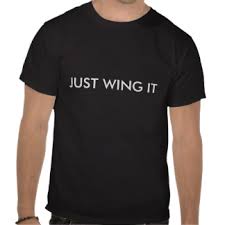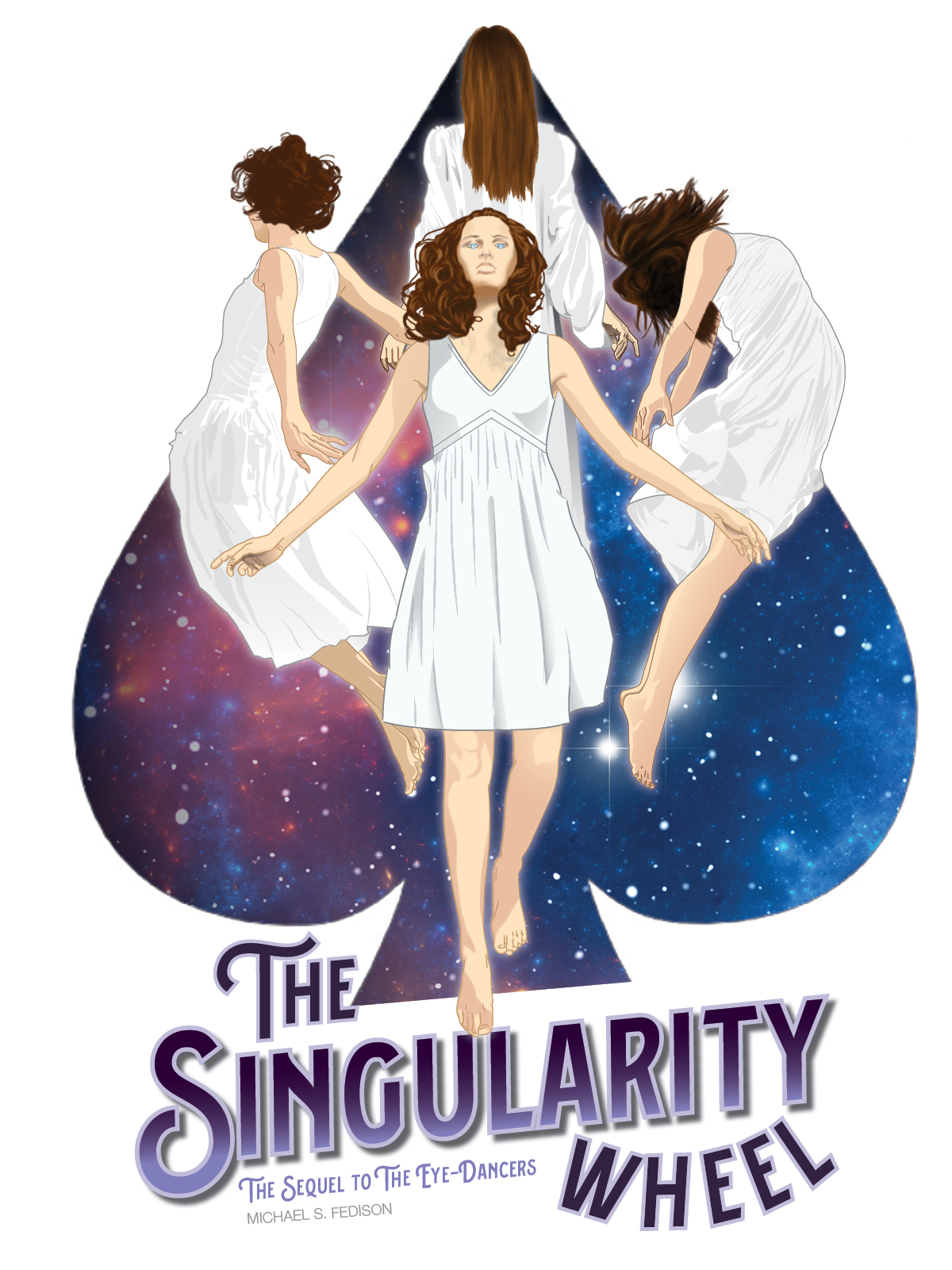It often happens this way . . .
An idea strikes. How it strikes, why it strikes, you do not know. It just does–a gift from the universe, the birth of a new story you feel meant to write. You want to celebrate. There is nothing like the euphoria of a new idea that grabs you, demands to be written, kicks and yells and screams to be let loose onto the page.
But then . . . you realize the idea is layered, rich, complex. It’s not a short story. It’s a novel. Uh-oh. A novel needs a plot, and a subplot, and, maybe, a sub-sub-plot! It needs direction, organization, planning. Suddenly the inspired idea doesn’t seem so inspired anymore. How can such a gigantic project be tackled? Where to begin?
At this point, you may be tempted to borrow from Stephen King, who, in his memoir On Writing, explained that when he begins a novel, he often does not know where he’s heading. He gets an idea, an image, a scene–and that’s all he needs. From that kernel, he begins to write, hoping, trusting, that said kernel will sprout and duplicate, creating a garden of seeds, which will then flower and bloom. So, perhaps, you do indeed begin your story, not knowing where it will lead . . .
As author William Saroyan once said, “I don’t have a name and I don’t have a plot. I have the typewriter and I have white paper and I have me, and that should add up to a novel.”
Or, perhaps you’re a dedicated planner and outliner, and you set out to craft detailed chapter-by-chapter outlines. You think of the main characters, the supporting characters, the bit characters. You form a clear picture of the setting, down to the last, intricate detail. Is the post office on Main Street, Elm Street, or Walnut Way? You map it out. “Writing a novel is like traveling the universe on foot,” writer Dennis R. Miller has said. You want to be prepared for anything. There are always some surprises, of course, anytime you write creatively. But with this intense level of planning, you try to minimize these surprises. You want to know exactly where you are going.
Or maybe you fall somewhere in between–you plan a general strategy, with a few major plot points as guideposts. And you may even have a broad idea how the story will end. But many of the details are left out–you want the comfort of a firm foundation but the freedom to create during the process. This tends to be my approach. I cannot seem to begin a novel without some sense of direction in my mind. Even if I don’t yet know all the twists and turns along the back roads, I at least want to know what state I’m traveling through.
When I started The Eye-Dancers, I knew the first scene would be Mitchell Brant seeing the “ghost girl” again, for the third consecutive night. I knew the next several chapters would introduce the other main characters of the book and move the plot along at the same time. I knew the setting where the bulk of the story would take place, and thought I had a reasonable sense of how it would all end (though the ending I initially envisioned turned out a little differently when I actually wrote it).
The thing is, this approach still brings with it a great deal of uncertainty. Much like the Stephen King method, this requires an abundance of faith. If you don’t have every detail planned out ahead of time, then the possibility exists that you will get stuck at some point. In The Eye-Dancers, it was certainly possible that I would have brought Mitchell and Joe and Ryan and Marc through the void and into the variant town of Colbyville, but then, devoid of any further ideas, I would leave them stranded there like astronauts that have crash-landed onto some dim, lifeless asteroid, with no means of repairing their ship and getting back home. The story may have ground to a complete halt.
Indeed, what happens, for instance, if you write 207 riveting pages, full of tight narrative description, crackling dialogue, and a well-paced and interesting plot, but then, suddenly, on page 208, you just stare, wide-eyed and horrified, at the blinking cursor on your screen? You’ve created a top-notch first half–but now what? The middle section of a novel is often the most daunting aspect to get through. The lines of the story reach out in all directions, a maze of tangled branches and labyrinths needing, somehow, to be navigated. You have a good idea how you want the story to end. But how do you get there from here?
Your mind may lock up, holding your creativity hostage. You may feel panic, regret, frustration. It took months to write those first 207 pages! How can it all dry up now? All that work (and good work, too) going to waste? You might feel like deleting the file and tossing any printed-out pages into the fireplace. You might curse the day you ever thought you had a complete story idea. You might be tempted to give up writing altogether.
But then, then! An idea comes. Ah–yes. That’s how it should go . . . and you begin to peck away again, the clinky, rhythmic noise of your keyboard the sweetest music you’ve heard in days. You get the flow back, and the crisis is averted. Of course, the same trouble may arise again two chapters hence, but you dare to take the risk, your dark, bitter musings only minutes ago now awash in your own personal River of Lethe.
You realize that, despite the inherent insecurities, there is nothing that can compare to the art of creating, of letting the words and sentences pour through you, of feeling the sense of accomplishment as the bones of your story take on flesh and cartilage and sinew. A wide chasm still separates you from story’s end–but you don’t look down into the dark, bottomless abyss. You choose to look ahead, thinking of the possibilities, the wonders, the discoveries yet to be made.
The world is out there, just beyond your doorstep.
You just need to make the leap.
“Jump,” Ray Bradbury once said, “and you will find out how to unfold your wings as you fall.”
Thanks so much for reading!
–Mike







































Aug 01, 2013 @ 18:48:55
Definitely in the middle. I do a lot of planning with outlines and character bios, but I know most of my ideas will change as I write them. This might be why I focused more on creating great characters to carry the story than amazing stories to carry the characters.
Aug 02, 2013 @ 13:41:27
That is a great way to go about it. Especially for a novel, your characters definitely need to be the focus. Writing a solely plot-driven novel would be next to impossible, I think . . .
Aug 03, 2013 @ 22:46:54
I’m sure it can be done, but it sounds like it would be boring or the characters would be nothing more than shadows going through their motions.
Aug 01, 2013 @ 19:40:31
I don’t plan, just let my muse carry me along for the ride for the most part. However, my newest idea is in a genre I did not imagine myself writing – romance! This has me researching and writing out guidelines. Maybe each project has its own requirements?
Great post – thanks Mike.
Aug 02, 2013 @ 13:42:33
I think that’s true–each project is unique. I admire you for not planning most of the time! That is something I cannot seem to do . . .
Aug 01, 2013 @ 20:00:06
I am definitely a character based writer. As far as I am concerned, you can have the best plot, setting, ect. but the going to get less involved if they can’t relate to the characters. The plot can be basic but the characters have to be rich.
Aug 02, 2013 @ 13:43:03
Very well said, and I couldn’t agree more!
Aug 04, 2013 @ 01:32:01
Thank you. 🙂 I’m glad the way I write makes sense to some people.
Aug 01, 2013 @ 21:03:54
Nice!!
Aug 02, 2013 @ 13:43:25
Thanks, Barbara!:)
Aug 01, 2013 @ 22:56:23
Nice post. I mapped mine out in my head first, but when I got to about chapter three, I had to sit down and seriously construct timelines and a rough outline. I didn’t follow the outline entirely, but it helped with sense of direction. The character development came naturally. Staying organized was my greatest challenge.
Aug 02, 2013 @ 13:46:14
I agree–I find it necessary to jot down notes and guidelines. A novel is such a long, complex project. I need some notes to help me along.:) They serve as road signs in a way. Many details are left out–they will happen naturally during the flow of writing. But a few major plot points or developments I like to know about ahead of time. Of course, even these can, and often do, change throughout the writing process!
Aug 02, 2013 @ 01:55:07
Hi Mike.
Great advice to all writers. 🙂
Have a great weekend. Hugs Paula xxx
Aug 02, 2013 @ 13:46:39
Thanks Paula! You have a great weekend yourself!:)
Aug 02, 2013 @ 02:08:49
Enjoyed this post!
Aug 02, 2013 @ 13:46:53
Thanks, Mary!
Aug 02, 2013 @ 03:42:01
Thanks for that awesome read as well as the great advice! 🙂
Aug 02, 2013 @ 13:47:12
Thank you! I’m glad you enjoyed this!
Aug 02, 2013 @ 13:50:44
Great post, Mike! I think what you have said in a nutshell is a novel takes inspiration and depends on hard work to come to fruition–no matter how it may begin–with careful plotting or a wing and a prayer. Personally, I’m in the Stephen King camp; it’s more fun that way.
Aug 05, 2013 @ 18:44:01
You know, maybe, just maybe, I will give the Stephen King method a shot!:) It does sound fun! I have never really been able to do it . . .
Aug 02, 2013 @ 14:17:49
Wow, as I was reading your amazing post, I realized that I was gripping my computer mouse, because the suspense was so intense, then Ray Bradbury’s inspiring quote sent me straight to Heaven !
Aug 05, 2013 @ 18:44:29
Thanks you! That is very nice to hear.:)
Aug 02, 2013 @ 19:51:23
Very helpful. It was a good day in class. Those are questions I ask and you answered. Thank you.
Aug 05, 2013 @ 18:44:53
Thank YOU! And you’re welcome.:)
Aug 02, 2013 @ 23:14:03
I am a poor planner. I usually start with my photos, get some pictorial composition done and let things dictate my writing but it will take a lot of editing of words later which is very troublesome and time consuming indeed. My writing is simple (recipes are quite straight forward) but my poor English hinders my expression and I spend a lot of time going through my post to refine it. I really admire you for your writing and especially when the story has so much turns and twists. You are very creative and such a talent, Michael! Great post as usual 😀
Aug 05, 2013 @ 18:45:38
Thank you, Sam! It is always a pleasure to hear from you!
Aug 03, 2013 @ 07:06:02
This post is so relevant to me at the moment. Thank you for it (:
Aug 05, 2013 @ 18:46:07
Thank you! Your words really made me smile.:)
Aug 03, 2013 @ 13:29:16
I still love this post, even the second time around. So creative and thought provoking. It motivates me!
Aug 05, 2013 @ 18:46:31
Thanks, Robin! I’m very glad to hear that!
Aug 03, 2013 @ 14:51:32
I love reading your insights on novel writing, Mike! Fantastic post!
Aug 05, 2013 @ 18:47:06
Thanks, Lesley!:)
Aug 05, 2013 @ 23:51:34
🙂 Always a pleasure stopping by your blog!
Aug 03, 2013 @ 17:52:44
Fantastic, gives us all hope for those times when there is absolutely no thoughts in your head whatsoever. It’s heartening to know that others just wing it when writing as well.
Aug 05, 2013 @ 18:47:45
Thanks! And yes, that is heartening, isn’t it?!
Aug 03, 2013 @ 19:36:19
It’s always great to find that everyone suffers the same as you do! The eternal question mark—-where do we go from here, and hos did we get here anyway?
Aug 05, 2013 @ 18:48:11
Eternal question marks indeed!
Aug 03, 2013 @ 19:52:58
Really great read. Thanks Mike. And spot on with so much of what you say. It really is good to know everyone else has the same mental/ writer’s blocks sometimes and also to see from the comments here that we all have different approaches to writing: There is no right or wrong way. I have to say I didn’t plan my characters initially -eek! But I found I developed each character as I wrote so I am not sure you can’t start with a plot based idea and build the characters around it. Perhaps it depends on the genre. Agatha Christie certainly wrote plot based stories. Perhaps what I have won’t work, although one child who read my initial draft of my book for me did say he liked how the characters all had their own unique personalities and were not ,to quote: “2d”, so I must have got something right! Look forward to your next post and pearls of wisdom. 🙂
Aug 05, 2013 @ 18:50:03
Thanks, Freda! And I think the key here is exactly what you said–there is no one right way. That’s really the beauty of writing and creativity in general–there are so many ways to go about it! Always great hearing from you!
Aug 04, 2013 @ 09:51:44
I totally agree, we want to know where we’re going, but sometimes writing, just like life, takes us on a journey 🙂 Thanks for sharing Mike.
Your friend,
Lucas
Aug 05, 2013 @ 18:50:37
Thanks, Lucas! Glad you enjoyed this post!
Aug 05, 2013 @ 19:31:23
You have motivated me to motivate you to get going on another novel. Wouldn’t dream of writing one myself. Am overwhelmed by the sheer hugeness (is that a word?) of it all.
Aug 06, 2013 @ 12:47:47
You’re right–it is a huge undertaking.:) And most of the stories I have written in my life have been short stories, so the scope of a novel always feels daunting to me! That said, I have begun a sequel to The Eye-Dancers! Hopefully I won’t get stuck along the way!:)
Aug 06, 2013 @ 23:43:13
Oh, yes!
Aug 08, 2013 @ 14:56:17
🙂
Aug 07, 2013 @ 17:05:06
Great post Mike, and yes, ultimately, it really is about taking that leap no matter how you take it! Personally, I love William Saroyan’s idea – now that’s creative edge! Also, just to let you know that I’ve nominated you for the Inner Peace Award (we could all use some of that, right?) and best of all, no work required! It’s just my way of saying thanks 🙂 http://sherrimatthewsblog.com/2013/08/07/inner-peace-award/
Aug 08, 2013 @ 14:55:57
Thanks so much, Sherri! I really appreciate that!
Aug 07, 2013 @ 18:10:38
Keep creating … your words never fail to hold their spell… 🙂
Aug 08, 2013 @ 14:55:28
Thank you, Sue!:)
Aug 11, 2013 @ 02:33:14
i think if i were to ever get up the gall to write a book and not just a bunch of short stories like im used to… i’d have to do outlines and character profiles first. im so used to writing stories now that don’t really have an ending per se or i know them exactly that im not sure i could write a novel without first knowing how it ends lol. i may even have to start from the end and go backwards. anyway… i always like what you have to say. there’s always some really good advice.
Aug 12, 2013 @ 19:08:32
Thanks so much! And as for a novel–well, the great thing is, there is no single right way! It really is a case of “whatever works well for you”.:) I usually have an idea of the ending before I begin, though it invariably changes a bit as the story progresses . . .
Aug 12, 2013 @ 23:32:54
I like the concept of this very post…very thought provoking and inspiring and making me think now 🙂
Aug 13, 2013 @ 19:21:57
Thank you!:)
Aug 15, 2013 @ 02:51:07
Great post! I was just wondering . . . which chapter did you find the easiest or the most difficult to write? My first chapter was the most difficult. I finished it last. By the way, I’m curious about your short stories. I read in an interview that you were going to publish three of them in a book. Are they similar to your novel?
Aug 15, 2013 @ 15:44:28
Hi Sheryl! I agree–first chapters are hard! And the Epilogue was difficult too–I think I wrote the Epilogue 20 times before it was “done”:) The short stories are a bit different in the sense that they’re not as much YA and not sci-fi. But–some of the themes in them are similar to The Eye-Dancers! Thanks for checking in, Sheryl! Always great hearing from you.:)
Aug 17, 2013 @ 01:32:42
I have written mostly children’s stories and short stories. Once I wrote a murder mystery and ended up trashing it when I my Mom said the murder “weapon” had been used before. I thought it was a unique idea! But the story was interesting and may someday make a better short story than a novel. I have thoughts that give me the beginning and the end, it is the middle and how it goes, that is my challenge!
Aug 19, 2013 @ 19:21:45
Always great to hear from you, Robin! And you’re right about the middle–often that is the trickiest part to writing a novel!
Aug 23, 2013 @ 21:01:26
Mike, I love the way you write and express your feelings. It is incredible! I agree with King and you about writing. Three of my novels I just sat down at the computer and started typing. It was as if the story was at the tips of my fingers and anxious to get out. I am a fast typist when the ideas start to flow.
Then I read somewhere that a writer should make an outline first and plan out the whole story. I did do that with one out of the four novels that I wrote. It made it easier to plan ahead but then I wasn’t as surprised as when I just left it flow naturally. I love writing so I will just see how it goes from now on. Best wishes to you!
Aug 26, 2013 @ 12:09:36
Thanks, Janice! Yes, it is fascinating, isn’t it? That there is no one “right” way to the writing process. It truly is a case of –whatever works for you! I like to have a general plan ahead of time–but not a detailed one. That way, I have some idea where I’m going, but I leave a lot of room for the creative process to take me where it will . . .
Aug 26, 2013 @ 13:40:28
Mike, thanks for this post. It was enjoyable and validating.
Have a marvelous Monday.
Aug 26, 2013 @ 13:42:23
Thank you! Have a marvelous Monday yourself.:)
Sep 03, 2013 @ 20:40:34
This post is amazing. It’s great that you see the writing process from both viewpoints – Structured and creative. I like to have both. I like to have a structure to work to but I enjoy letting my creative mind talk for itself.
I have shared this post on my http://www.facebook.com/quirkybooksnet page.
Thanks for sharing.
Sep 05, 2013 @ 19:15:43
Thanks so much for sharing this on your Facebook page! I really appreciate that.:)
Sep 05, 2013 @ 22:37:07
You are very welcome. It’s my pleasure.